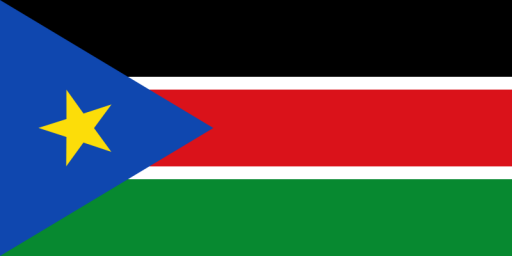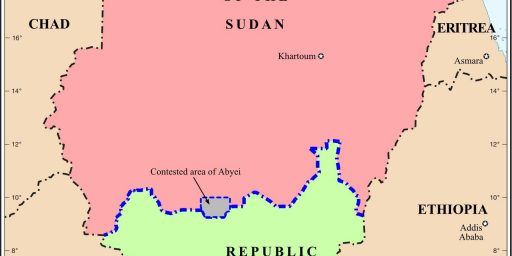Sudan Signs Peace Deal
Sudan Signs Landmark Darfur Deals with Rebels (Reuters)
Sudan bowed to international pressure on Tuesday for a ban on military flights over the Darfur region, where 1.5 million have been forced from their homes, and signed two landmark peace deals with rebels.
After two weeks of talks in the Nigerian capital, the government dropped its opposition to the no-fly zone and signed agreements with rebels covering security and access for aid to Darfur, scene of what the United Nations has called the world’s worst humanitarian crisis.
“We still have a long way to go, but the step we have taken this afternoon is a very important step in the right direction,” said Nigerian President Olusegun Obasanjo after a signing ceremony.
The government climb-down comes 10 days before a United Nations Security Council meeting at which Sudan could have seen sanctions imposed on its oil industry because of the lack of progress in the talks and a deteriorating security situation on the ground in Darfur.
The security protocol, which imposes a ban on “hostile military flights” over the desert region the size of France, also envisages the government disarming loyalist militia known as the Janjaweed who are accused of a campaign of rape and killing.
It also instructs both sides to reveal the location of their forces to cease-fire monitors.
The humanitarian protocol says aid workers should be given free access to refugees in precarious, makeshift camps where disease and malnutrition have killed at least 70,000 people since March.
The agreements were hailed as a breakthrough by African Union mediators at the two-week-old talks, but analysts doubted whether they would be implemented.
“When it is put under pressure, the Sudanese government says it will concede, but whether this translates to action is another question and I think that is unlikely,” said Tom Cargill, Africa program coordinator of the Royal Institute for International Affairs in London.
Obasanjo echoed these doubts, saying: “These documents won’t be worth the paper they are written on if they are not scrupulously implemented on the ground.”
‘Breakthrough’ Deal for Darfur (BBC)
The Sudanese government and rebel leaders from Darfur have signed two accords aimed at ending the crisis after two weeks of talks.
In a security deal the government – under international pressure – accepted a ban on military flights over Darfur.A separate agreement seeks to ease delivery of humanitarian aid to Darfur, where 70,000 have died since the conflict began.
Observers are describing the accords as a breakthrough.
The move comes as aid agencies say the deteriorating security is hampering aid efforts.
“It is really a historical moment,” Sudanese government spokesman Ibrahim Mohammed Ibrahim is quoted by Associated Press as saying after both sides signed the protocols.
Observers see the accords as a breakthrough after two weeks of African Union (AU)-sponsored talks between the government and the two rebel movements.
“We hope this will be the first stage toward the improvement of the situation on the ground,” Ahmed Hussein Adam from the rebel Justice and Equality Movement (Jem) group said.
With Yasser Arafat and Fallujah taking up the international headlines, it’s easy to overlook this story. But it’s equally — if not more — important, especially if the negotiation holds. Given how complex the situation is, I can’t say that I’m terribly optimistic, though I’m obviously encouraged that some progress has been made.
In the meantime, I suspect that the United States will allow future development aid to reach Sudan — something that it threatened to pull just prior to the deal. We’ll see what else ensues in the next few days.





Why do I get the sinking feeling that the non-Arabs in Darfur are going to die because of this ‘treaty’.
I’m with Bigfire, here.
I’ll welcome progress when it comes, Robert, but in all candor, I have to wonder if this deal IS, in fact, progress.